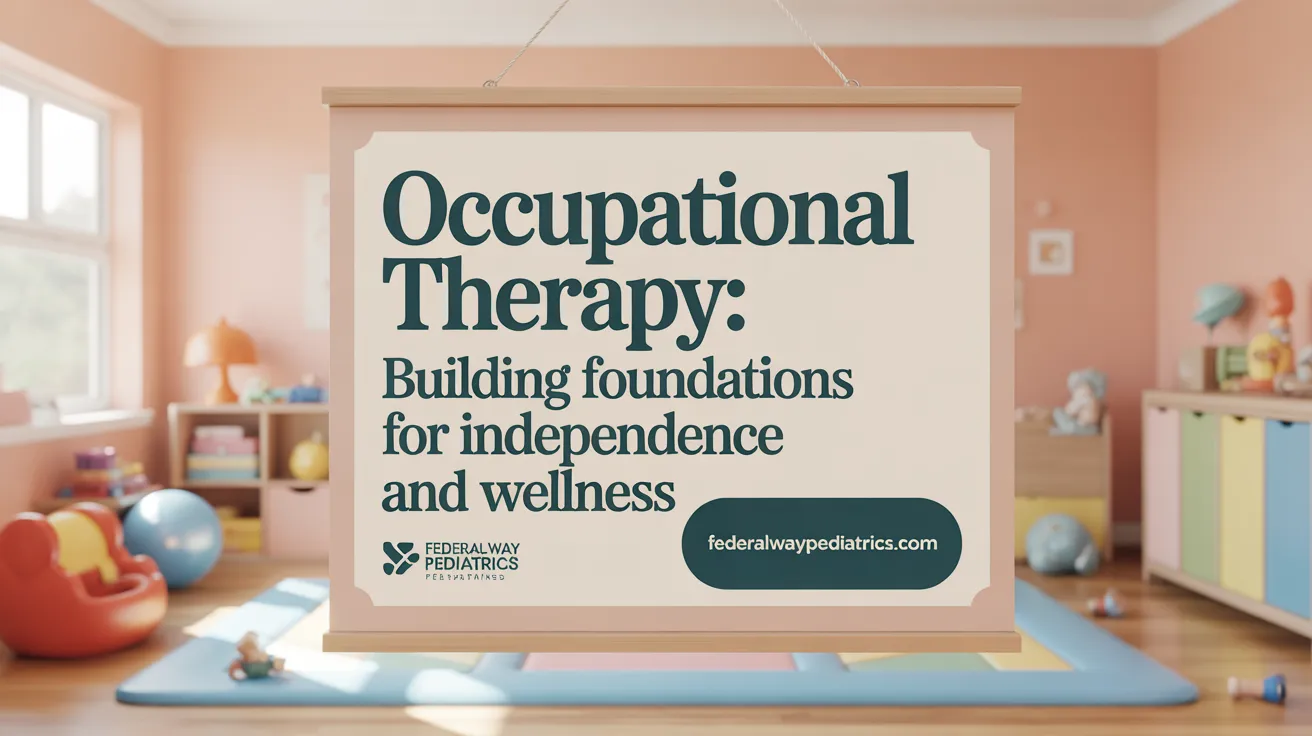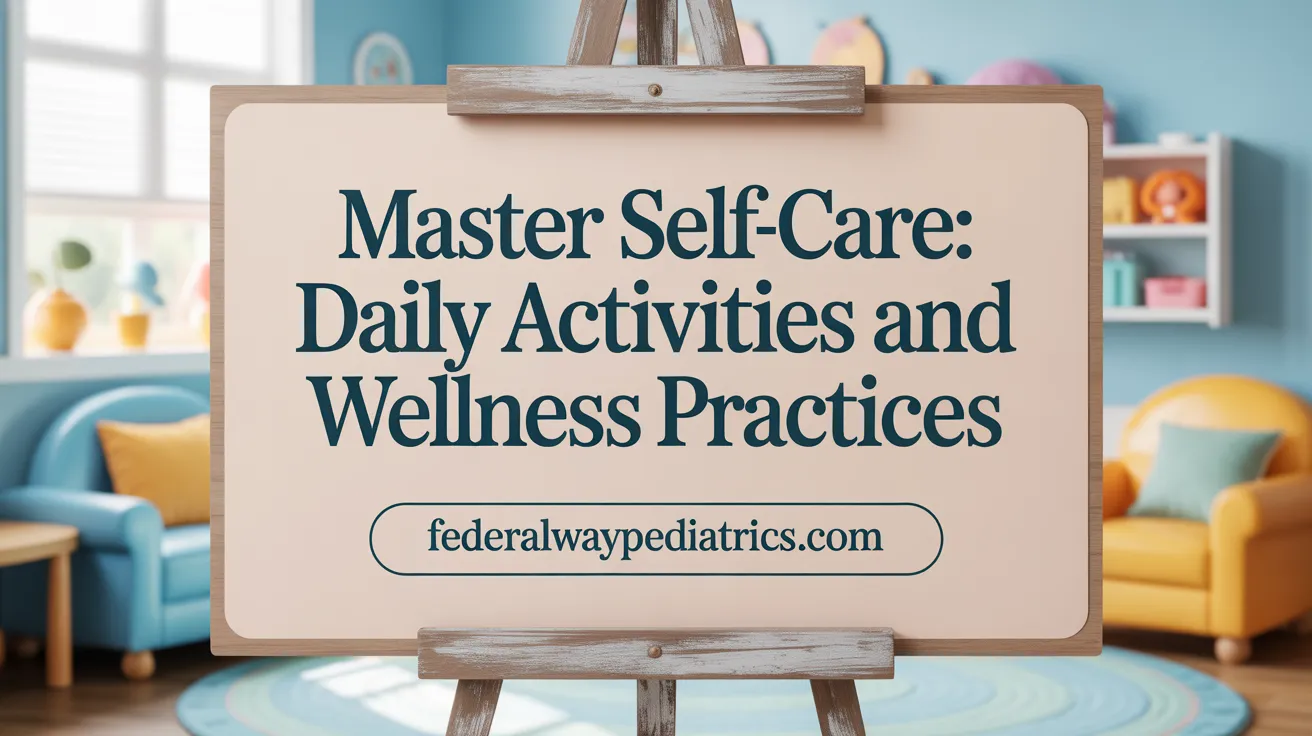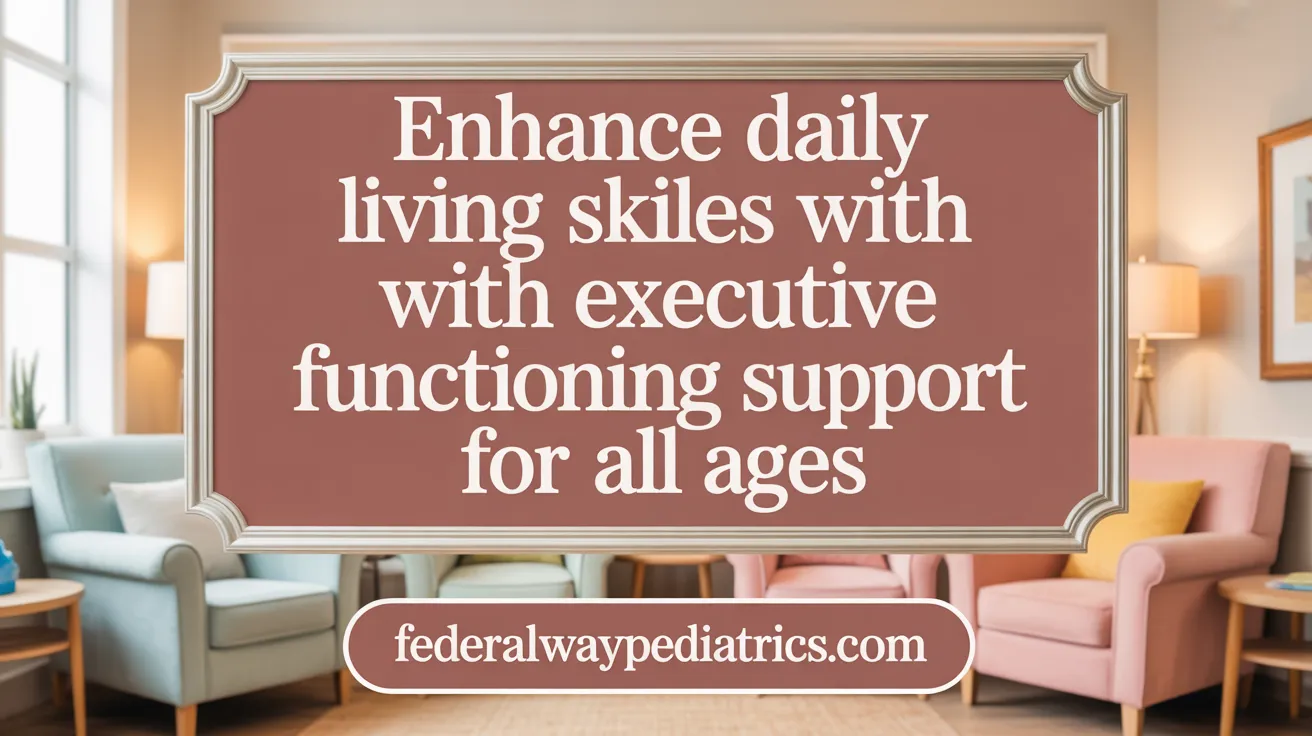Understanding the Importance of Life Skills
Life skills development is critical for children with Down syndrome to foster independence, confidence, and active participation in family and community life. By cultivating essential abilities ranging from self-care to money management, these children gain the tools needed to navigate daily routines and social situations successfully. Early and consistent intervention, tailored educational strategies, and supportive environments can significantly enhance their capacity to live fulfilling lives. This article explores key life skills relevant to children with Down syndrome, teaching strategies, supportive resources, and transition planning to empower readers in supporting these children effectively.
Key Life Skills for Children with Down Syndrome

What are the key life skills relevant to children with Down syndrome?
Children with Down syndrome benefit from early and consistent instruction in various everyday skills that promote independence and confidence. Occupational therapists often play a vital role in helping develop these abilities by implementing strategies such as visual sequencing, modeling, and hands-on practice.
Essential life skills include activities related to self-care, like cooking, laundry, personal hygiene, and dressing. They also encompass community navigation—learning to use public transportation, shopping, and attending medical appointments. Money management skills, such as recognizing coins, writing checks, and using ATMs, are crucial for fostering financial independence.
To support these learning goals, specialized programs like Skill Trek offer multimedia lessons tailored to different ages, from preschoolers to young adults. These lessons are engaging, customizable, and focus on mastery of skills like making sandwiches, understanding money, and operating financial tools. Such courses often incorporate videos, assignments, and real-world practice opportunities.
In addition to formal lessons, real-life practice in community settings is essential. Community-based instruction, including role-playing shopping, ordering food, and crossing streets, helps generalize these skills across different environments. Using assistive technology, such as communication devices and visual supports, further enhances participation and decision-making.
Building competence in these areas not only aids in daily independence but also supports social inclusion, academic success, and future employment opportunities. Emphasizing practical life skills from an early age ensures children with Down syndrome are equipped to lead fulfilling, empowered lives.
Effective Strategies and Best Practices in Teaching Life Skills
Which strategies and best practices support teaching life skills to children with Down syndrome?
Teaching life skills to children with Down syndrome requires approaches that accommodate their unique learning styles and developmental needs. One of the most effective methods is individualized instruction, which involves tailoring activities and lessons to each child's strengths and challenges. This personalization helps children engage more fully and build confidence.
Visual supports play a crucial role in helping children understand and remember tasks. Using visual aids such as picture schedules, social stories, and visual cues simplifies complex instructions and provides consistent visual references. Hands-on activities further reinforce learning by allowing children to practice skills actively, which increases retention and mastery.
Establishing routines and using clear, simple language create a predictable environment that reduces anxiety and promotes independence. Repetition of routines and instructions helps children internalize skills over time.
Incorporating technological and multimedia tools, like educational apps and videos, can make learning more engaging. These tools often appeal to children with visual learning preferences and can provide immediate feedback.
A collaborative approach among teachers, parents, occupational therapists, speech therapists, and other support professionals ensures comprehensive development. Regular communication and coordinated strategies optimize learning and generalization of skills across settings.
Finally, fostering an inclusive classroom environment where patience, encouragement, and positive reinforcement are emphasized is fundamental. Such supportive surroundings motivate children with Down syndrome to participate actively and develop essential life skills that promote independence and community engagement.
Supporting Independence Through Occupational Therapy

How can occupational therapy support life skills development in children with Down syndrome?
Occupational therapy plays a vital role in helping children with Down syndrome build essential life skills, fostering their independence and improving their participation in daily activities. These therapists evaluate each child's specific needs and strengths to develop personalized interventions.
Through targeted activities, OT professionals support development in areas such as personal care, communication, social interactions, and cognitive functions. For instance, they may teach dressing routines, feeding techniques, or social skills through structured practice and modeling. Using frameworks like the Model of Human Occupation (MOHO), therapists focus on motivation, routines, and identity, making the learning relevant to everyday life.
In addition, OT incorporates adaptive equipment and modifies the environment to enable easier task completion. This includes tools such as grab bars, button hooks, or visual cues that help children perform activities more independently. Sensory processing issues, common in children with Down syndrome, are also addressed to improve regulation and focus, which are crucial for learning new skills.
The benefits extend beyond basic tasks. Occupational therapy enhances community participation by preparing children to navigate outings, use public transportation, or handle community-based demands. Overall, this approach boosts confidence, promotes autonomy, and helps children with Down syndrome lead more fulfilling, independent lives.
Activities of Daily Living (ADLs) and Physical Needs
 Activities of Daily Living (ADLs) are fundamental tasks that children with Down syndrome need to learn to achieve independence in everyday life. These include essential self-care activities such as personal hygiene—brushing teeth, bathing, and grooming—as well as dressing skills like selecting appropriate clothes and dressing oneself independently. Eating skills, which involve using utensils properly and preparing simple snacks, are also vital. Occupational therapists play a crucial role in helping children develop these skills. They utilize play-based approaches and sensory integration techniques to address fine and gross motor coordination, sensory processing, and body awareness.
Activities of Daily Living (ADLs) are fundamental tasks that children with Down syndrome need to learn to achieve independence in everyday life. These include essential self-care activities such as personal hygiene—brushing teeth, bathing, and grooming—as well as dressing skills like selecting appropriate clothes and dressing oneself independently. Eating skills, which involve using utensils properly and preparing simple snacks, are also vital. Occupational therapists play a crucial role in helping children develop these skills. They utilize play-based approaches and sensory integration techniques to address fine and gross motor coordination, sensory processing, and body awareness.
Early intervention programs target motor milestones, feeding, self-help, and communication skills. As children mature, continuous support from therapy helps them participate effectively in school, community activities, and social interactions. The goal is to foster independence in daily routines through tailored interventions, focusing on motor, sensory, and self-care abilities. This lifelong approach significantly boosts their autonomy, allowing children with Down syndrome to engage more fully in everyday life.
Children with Down syndrome often face specific physical challenges that impact their ability to develop and perform ADLs effectively. Common issues include low muscle tone, decreased strength, and hypermobility, which can delay motor milestones like sitting, standing, and walking—all critical for self-care and mobility. These physical characteristics can also affect body awareness and sensory processing, making exploration and socialization more difficult.
To overcome these challenges, physical and occupational therapy are essential. These therapies focus on improving posture, strength, coordination, and balance. Through regular targeted exercises, children can build the foundational motor skills needed for independence in daily routines. Addressing these physical needs early and consistently enables children to participate more confidently in self-care activities, mobility, and social engagement, laying a solid groundwork for lifelong independence.
Home-Based Activities to Promote Self-Care and Independence
How can caregivers promote independence and self-care skills for children with Down syndrome through home-based activities?
Caregivers play a vital role in nurturing independence in children with Down syndrome by actively involving them in daily routines and practical tasks. Establishing consistent routines supported by visual cues, such as picture schedules or visual timers, helps children understand what's expected in activities like dressing, brushing their teeth, or helping set the table. These visual supports not only build familiarity but also boost confidence as children learn to manage self-care tasks independently.
Incorporating practical home activities encourages responsibility and mastery. Tasks like assisting in simple cooking recipes, tidying up their play areas, or organizing personal belongings teach children necessary life skills through hands-on experience. Such activities promote responsibility while making learning engaging and relevant.
Playful and hands-on approaches are especially effective. Arts and crafts, obstacle courses, and role-playing games develop fine and gross motor skills, coordination, and social understanding while providing fun opportunities for practice. For example, cutting paper or threading beads improves fine motor control, whereas jumping or dancing activities enhance gross motor strength.
To further support developmental progress, online educational resources and games designed for children with Down syndrome can be incorporated. Sensory activities, interactive apps, and tailored learning modules focus on essential skills like sequencing, memory, and problem-solving, all contributing to greater independence. When caregivers integrate these activities thoughtfully into daily life, children gain confidence in their abilities and move closer to self-sufficiency.
Educational Programs and Training for Life Skills Instruction
Several well-established curricula are designed to teach essential life skills to children with Down syndrome, promoting independence and community participation. Notable among these are 'Youth Skills for LIFE,' which offers comprehensive lessons covering career readiness, health, money management, and housing. This curriculum provides resources tailored for young people transitioning into adulthood and includes support materials for educators and caregivers. Another prominent program is 'Overcoming Obstacles,' a free K-12 curriculum launched in 1992 focused on social skills, emotional regulation, and daily living activities. Its widespread use across schools worldwide highlights its effectiveness.
In addition, the 'LifeSkills Training' (LST) program developed by Gilbert J. Botvin offers proven strategies to develop essential life skills and prevent risky behaviors. It features interactive components, such as the LST Galaxia game, which make learning engaging for children and teens. These curricula are adaptable to various learning needs and emphasize accessibility to ensure all children, including those with Down syndrome, can benefit.
To implement these programs effectively, educators need specialized training. Various options are available, including online courses like "Effective Education for Children with Down Syndrome in School." These courses provide evidence-based strategies tailored to support speech, social skills, and inclusive classroom practices. They often incorporate multimedia resources like videos, handouts, and assessment tools, aiding teachers in practical application.
Organizations such as Down Syndrome Education International (DSEI) also offer targeted professional development, including multimedia courses and comprehensive resources designed for educators. Additionally, conferences organized by groups like DSAGSL and NDSC provide opportunities for teachers and professionals to earn continuing education credits, learn about behavior management, literacy strategies, and curriculum planning for children with Down syndrome.
Supporting effective instruction in life skills entails ongoing professional development coupled with collaboration among families, therapists, and educators. This team approach ensures that teaching methods are aligned with each child's strengths and needs. Furthermore, adaptations such as visual aids, assistive technology, and modified materials are crucial for making curricula accessible and engaging.
In summary, a range of curricula and teacher training programs are available to equip educators with the necessary tools to teach vital life skills to children with Down syndrome. These resources contribute to fostering independence and enhancing quality of life for these learners.
Developing Executive Functioning and Social Skills

How can executive functioning skills be developed in children with Down syndrome?
Developing executive functioning (EF) skills in children with Down syndrome involves targeted strategies that improve daily living and adaptive behavior. Occupational therapists play a vital role in this process, focusing on strengthening core EF components such as attention, working memory, organization, planning, self-monitoring, emotional regulation, and flexibility. Since difficulties in working memory and planning tend to persist over time, early intervention is important.
Structured routines and visual supports like schedules and checklists help children anticipate daily tasks and manage transitions smoothly. Hands-on activities tailored to individual strengths can enhance specific EF skills. For example, using visual cues for sequencing when cooking or tidying up promotes independence.
Ongoing assessment and collaboration with specialists allow caregivers and educators to adjust approaches as children grow. These consistent, personalized strategies are essential for building lasting improvements in cognitive and adaptive skills, empowering children with Down syndrome to participate more fully in everyday activities and increase their independence.
Strategies for EF development include:
- Visual sequencing tools
- Task analysis with step-by-step guides
- Repetition and practice
- Using timers and prompts
- Encouraging self-reflection and goal setting
Consistent support helps children develop confidence and better manage their environment, leading to improved life skills and greater self-reliance.
Planning for Life Beyond School: Transition and Future Independence

Why is early transition planning crucial for children with Down syndrome?
Starting transition planning early is vital for supporting children with Down syndrome in achieving independence after school. When planned well, it allows families, educators, and professionals to develop personalized pathways toward employment, further education, community involvement, and independent living.
By beginning around age 14, families can ensure that children have access to essential services, assessments, and resources that facilitate a smoother transition. Early planning focuses on building skills in areas like self-care, communication, and social participation, which are necessary for lifelong independence.
How do person-centered planning techniques help?
Person-centered planning methods, such as MAPS (Making Action Plans) and GAP (Goals Achievement Planning), are fundamental tools in transition planning. These approaches involve the individual with Down syndrome actively in decisions about their future.
By identifying their interests, preferences, strengths, and needs, these techniques help craft tailored goals and action plans. Such involvement promotes motivation, self-advocacy, and a sense of ownership over their life choices.
What areas does transition planning typically cover?
Transition planning addresses several critical life domains:
- Employment: preparing for work, developing job skills, exploring interests.
- Education: pursuing post-secondary education, vocational training.
- Housing: exploring options for independent or supported living.
- Recreation: engaging in sports, arts, hobbies, and community activities.
By focusing on these areas, planning prepares individuals for a well-rounded, active life in their communities.
How are families, schools, and community services involved?
Successful transition relies on collaboration among families, schools, and community organizations. Parents and guardians provide vital insights into the individual's strengths and preferences.
Schools are responsible for implementing the IEP with transition goals, providing relevant coursework, and connecting families with community resources. Community agencies—such as employment programs or housing services—offer practical support and opportunities.
Engaging all stakeholders early and maintaining communication ensures plans are realistic, comprehensive, and adaptable to changing needs.
What resources and support options are available?
Numerous resources can aid ongoing development, including:
- Transition services programs: designed to support vocational and independent living skills.
- Support organizations: offering mentorship, training, and advocacy.
- Educational materials: guides and manuals for developing life skills.
- Legal and financial planning services: ensuring appropriate arrangements are in place.
Utilizing these supports can enhance long-term success and community inclusion for individuals with Down syndrome.
By understanding the importance of early, individualized transition planning and leveraging available resources, families and professionals can empower adolescents and young adults with Down syndrome to lead fulfilling, independent lives beyond school.
Fostering Lifelong Independence and Success
Supporting children with Down syndrome in acquiring vital life skills is a journey that begins early and continues through adolescence into adulthood. With tailored teaching strategies, dedicated occupational therapy, and robust support systems, these children can develop independence, social connectivity, and self-confidence essential for a fulfilling life. Caregivers, educators, and communities play a crucial role in nurturing these abilities through consistent practice, inclusive environments, and thoughtful transition planning. Embracing each child's unique strengths and promoting their autonomy can transform challenges into opportunities for growth, empowering individuals with Down syndrome to live active, meaningful lives in their families and communities.
References
- Life Skills - Down Syndrome Resource Foundation
- A life skills program perfect for children with Down Syndrome
- Essential Life Skills for Transition-Age Students - TeachTown
- Life Skills: An After School Program for Children with Down Syndrome
- Activities of Daily Living for Children with Down Syndrome
- [PDF] Activities and ideas for learning at home for children with Down ...
- Fine Motor Activities For Children With Down Syndrome - Gympanzees
- How to Teach Students With Down Syndrome: 15 Effective Strategies
